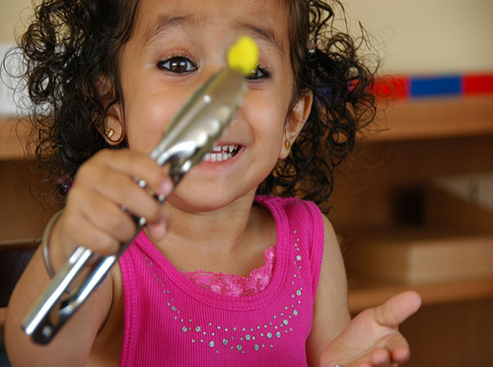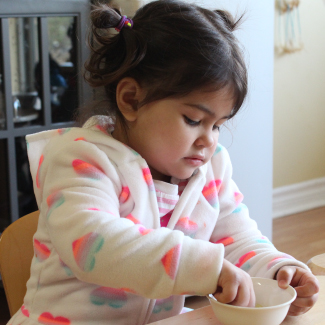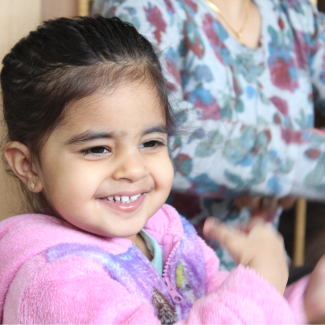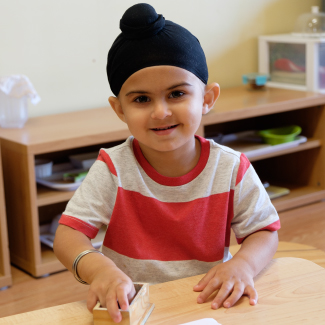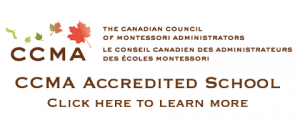How does the Montessori method work?
There are two main principles governing the Montessori method. The first is that teachers (be they parents or Montessori directors) must respect children. The second is that children are born with an inherent, natural love of learning. With these two beliefs setting the tone, the Montessori method can be applied both in the homeschool and classroom environment. Over the past century, Montessori educators have developed an excellent set of tools and learning materials that enable children first to develop the basic skills they need to learn effectively, and then to use those skills to acquire knowledge in the areas of language, science, history, mathematics and all of the subjects considered essential to a modern education.
Youngest children develop focus, motor skills, methodical habits and a sense of achievement by mastering physical tasks such as sweeping, scrubbing, polishing, and scooping. Sequencing, sorting, and problem solving are made enjoyable with blocks, models and puzzles of all kinds. Math basics begin with beads and cards and counters, and language skills improve with movable alphabets and language cards. Music and art play an important role in daily activities, and children investigate the habits of plants and animals. Older children then progress to more complex math, history, science and language arts with age-appropriate tools and materials. Throughout all levels, the child is guided to be orderly and tidy, and to help keep the classroom a good place for all of his/her classmates to work.
(Source: http://www.blog.montessoriforeveryone.com)

